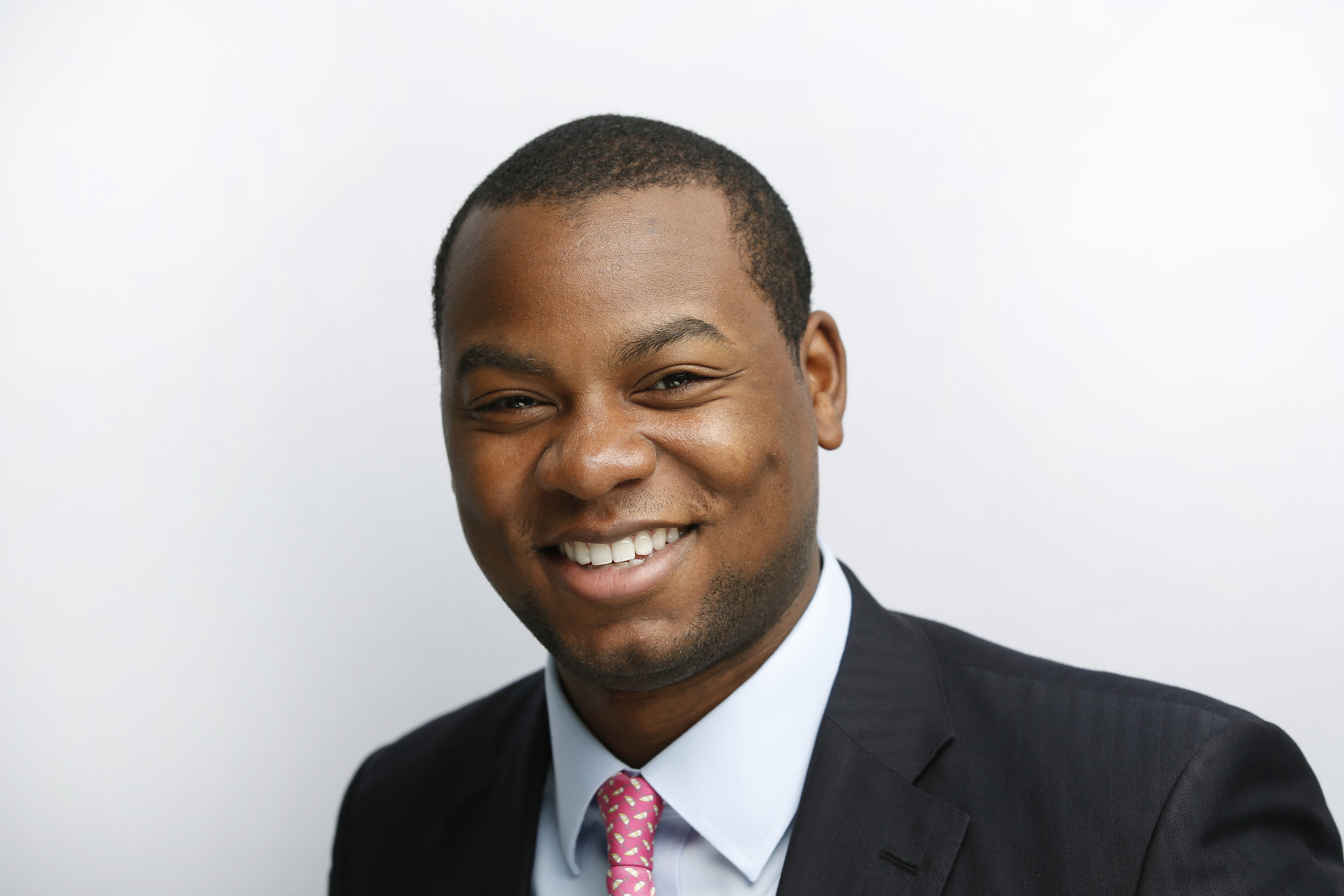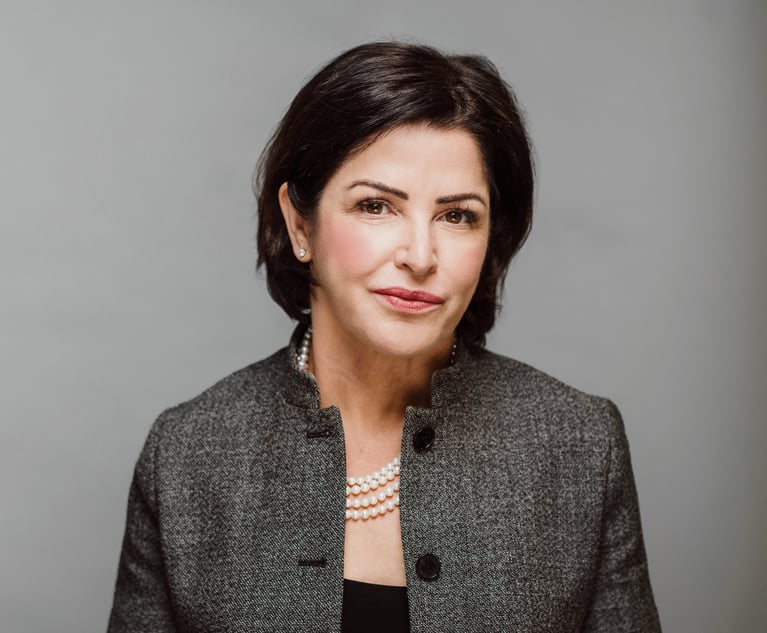The Three Barriers Preventing Law From Finding and Nurturing Black Talent
The UK legal industry appears to be missing this opportunity to embrace the benefits that come with more diversity, says a former Magic Circle Black lawyer.
June 25, 2020 at 06:01 AM
6 minute read
 Richard Robinson argues that missing out on work experience placements is the first stumbling block for black students.
Richard Robinson argues that missing out on work experience placements is the first stumbling block for black students.
It's heart-breaking that it has taken the death of yet another Black man at the hands of the police to prompt governments, society and corporations to finally confront the issue of systemic racism.
But the global outpouring of sadness, rage and resolve triggered by George Floyd's death could be a moment for some much-needed soul searching here in the UK's business community. Some sectors are embracing change and facing up to their lack of diversity.
The legal industry, however, appears to be missing this opportunity to embrace the benefits that come with more diversity. Considering the global demand for English legal services, you might expect the industry would be awash with diverse talent – but sadly that is not the case.
Only six of the 800 London-based partners of the Magic Circle of law firms are Black. The number of Black QC's still lags far behind the proportion of the population from the Black community. And the situation is similarly dire for women – who are still routinely underrepresented in the profession.
I am a Black British man from a working-class Birmingham family. I spent more than six years working as a lawyer for both a Magic Circle and a US law firm, but left the profession to start Robin AI, a technology company using artificial intelligence to automate low complexity legal work. With first-hand experience of both law and tech, I've seen how both industries are trying to answer the difficult questions posed by the recent Black Lives Matters protests.
To its credit, the technology community appears to be in a moment of meaningful introspection. Concerns that facial recognition technology will be used as a tool for widespread racial profiling have finally been heard – and prominent firms like IBM, Amazon and Microsoft have committed to withdraw their products. Andreessen Horrowitz and Softbank, venture capital funds in the US, have pledged to do more to support black entrepreneurs.
And a number of technology companies have used their platforms to listen thoughtfully to Black voices. These initiatives may not ultimately deliver real or meaningful change, but there are grounds for optimism.
In the law, the principal issue is not overt racism, but structural barriers that we've been too slow to dismantle. It's these barriers that dissuade aspiring Black lawyers from entering the profession and hold back those that do.
One of the reasons I started Robin AI was to try to help restore the faith and trust people once had in our lawyers and our legal services. Where once lawyers were considered honest and trustworthy, they are now often perceived as deceitful and avaricious. And part of the reason for our declining image in the eyes of the public is the industry's chronic lack of diversity.
When I reflect on my own journey into law, I see three major barriers holding the profession back from finding and nurturing talented black lawyers.
First, employers insist that aspiring lawyers must have law firm work experience before they'll be considered for the most prestigious jobs. But the truth that every lawyer knows is that many legal internships aren't advertised, and instead are awarded to the children of partners, barristers and clients behind closed doors.
Because the decision makers in the legal industry are mostly drawn from wealthy families and elite schools – whose members are overwhelmingly white – we know that Black students are the least likely to get legal work experience, so they fall at the very first hurdle. If we want a diverse profession, we have to end these conditions and start judging applicants on their promise and talent.
Second, we need to significantly reduce the financial barriers to joining the profession. According to the Law Society, leaving aside the spiralling cost of University, becoming a lawyer comes with a £25,000 price tag. On top of that, ethnic minority applicants from outside London in search of an internship or work experience with a law firm are all too often put off by the financial barriers to entry.
If you're Black in the UK, you're significantly more likely to come from a low-income household, so a four-week internship at nominal pay in one of the world's most expensive cities often isn't an option. To help identify the most promising future leaders of our industry, we need to make a commitment that there should be no financial barriers – and there are plenty of organisations in the industry with the financial muscle to make this happen.
Finally, the entire profession needs to encourage more Black lawyers to positions of leadership and esteem. When young Black lawyers do secure those rare and coveted jobs, they often report that they felt unwelcome, as if they didn't belong. That's because the managers and the leaders within the industry have similar backgrounds, similar stories and very few of them are Black.
There are countless talented Black lawyers who have been overlooked for training, investment and promotion. Now is the time to find those people and nurture them.
If we want English law to continue to market it itself to the global business community then we need to get serious about diversity. If the next generation of lawyers look the same as the last, the industry's reputation could be irreparably damaged in the eyes of people around the world who are committing right now to change.
Read More
Law Firms' Past Links To Slavery and Imperialism Unearthed
Linklaters Diversity Chief Talks About His Experiences of Racism
This content has been archived. It is available through our partners, LexisNexis® and Bloomberg Law.
To view this content, please continue to their sites.
Not a Lexis Subscriber?
Subscribe Now
Not a Bloomberg Law Subscriber?
Subscribe Now
NOT FOR REPRINT
© 2025 ALM Global, LLC, All Rights Reserved. Request academic re-use from www.copyright.com. All other uses, submit a request to [email protected]. For more information visit Asset & Logo Licensing.
You Might Like
View All
Pallas Partners Founder On the Disputes Trends to Look Out For in 2025
4 minute read
What to Expect From Teresa Ribera, the EU‘s New Competition Commissioner
6 minute read
Law Firms Mentioned
Trending Stories
- 1Cybersecurity Breaches, Cyberbullying, and Ways to Help Protect Clients From Both
- 2AI in 2025: Five Key Predictions on How It Will Reshape International Law Firms
- 3Justice Known for Asking 'Tough Questions' Resolves to Improve Civility
- 4Robinson & Cole Elects New Partners and Counsel
- 5'If the Job Is Better, You Get Better': Chief District Judge Discusses Overcoming Negative Perceptions
Who Got The Work
J. Brugh Lower of Gibbons has entered an appearance for industrial equipment supplier Devco Corporation in a pending trademark infringement lawsuit. The suit, accusing the defendant of selling knock-off Graco products, was filed Dec. 18 in New Jersey District Court by Rivkin Radler on behalf of Graco Inc. and Graco Minnesota. The case, assigned to U.S. District Judge Zahid N. Quraishi, is 3:24-cv-11294, Graco Inc. et al v. Devco Corporation.
Who Got The Work
Rebecca Maller-Stein and Kent A. Yalowitz of Arnold & Porter Kaye Scholer have entered their appearances for Hanaco Venture Capital and its executives, Lior Prosor and David Frankel, in a pending securities lawsuit. The action, filed on Dec. 24 in New York Southern District Court by Zell, Aron & Co. on behalf of Goldeneye Advisors, accuses the defendants of negligently and fraudulently managing the plaintiff's $1 million investment. The case, assigned to U.S. District Judge Vernon S. Broderick, is 1:24-cv-09918, Goldeneye Advisors, LLC v. Hanaco Venture Capital, Ltd. et al.
Who Got The Work
Attorneys from A&O Shearman has stepped in as defense counsel for Toronto-Dominion Bank and other defendants in a pending securities class action. The suit, filed Dec. 11 in New York Southern District Court by Bleichmar Fonti & Auld, accuses the defendants of concealing the bank's 'pervasive' deficiencies in regards to its compliance with the Bank Secrecy Act and the quality of its anti-money laundering controls. The case, assigned to U.S. District Judge Arun Subramanian, is 1:24-cv-09445, Gonzalez v. The Toronto-Dominion Bank et al.
Who Got The Work
Crown Castle International, a Pennsylvania company providing shared communications infrastructure, has turned to Luke D. Wolf of Gordon Rees Scully Mansukhani to fend off a pending breach-of-contract lawsuit. The court action, filed Nov. 25 in Michigan Eastern District Court by Hooper Hathaway PC on behalf of The Town Residences LLC, accuses Crown Castle of failing to transfer approximately $30,000 in utility payments from T-Mobile in breach of a roof-top lease and assignment agreement. The case, assigned to U.S. District Judge Susan K. Declercq, is 2:24-cv-13131, The Town Residences LLC v. T-Mobile US, Inc. et al.
Who Got The Work
Wilfred P. Coronato and Daniel M. Schwartz of McCarter & English have stepped in as defense counsel to Electrolux Home Products Inc. in a pending product liability lawsuit. The court action, filed Nov. 26 in New York Eastern District Court by Poulos Lopiccolo PC and Nagel Rice LLP on behalf of David Stern, alleges that the defendant's refrigerators’ drawers and shelving repeatedly break and fall apart within months after purchase. The case, assigned to U.S. District Judge Joan M. Azrack, is 2:24-cv-08204, Stern v. Electrolux Home Products, Inc.
Featured Firms
Law Offices of Gary Martin Hays & Associates, P.C.
(470) 294-1674
Law Offices of Mark E. Salomone
(857) 444-6468
Smith & Hassler
(713) 739-1250









